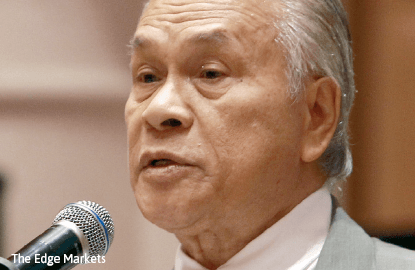
This article first appeared in The Edge Financial Daily, on January 4, 2016.
KUALA LUMPUR: The government will be turning back the country’s “human rights clock” if the National Security Council (NSC) Bill becomes law, outgoing Malaysian Human Rights Commission chairman Tan Sri Hasmy Agam said.
In an interview before the end of his tenure in April, Hasmy said the state of human rights in the past five years has not changed, as positive strides such as repealing the Internal Security Act (ISA) were subsequently nullified by enacting newer laws that choke civil liberties.
“As for now, I’m afraid we are not making much progress. While there were some positive developments, such as the removal of the ISA, there have also been developments that are putting back the human rights clock.
“[These include] the Prevention of Terrorism Act 2015 and the Security Offences (Special Measures) Act, along with the continuation of the Sedition Act (now strengthened) and the passage of the NSC Bill,” Hasmy told The Malaysian Insider.
The NSC Bill, which was bulldozed through the Dewan Rakyat and passed by the Dewan Negara, allows the council chaired by the prime minister to declare security zones.
This power has been described by civil society as “emergency-like powers” and contravenes the Federal Constitution, since only the Yang di-Pertuan Agong has the power to declare an emergency.
Hasmy said lesbian, gay, bisexual and transsexual rights would also be a challenging issue, which the new commissioners and society need to deal with seriously and carefully.
Although it is an extremely complicated issue, a national discussion has to be had to understand and promote a degree of tolerance towards the community, he said.
“This is a highly sensitive issue in Malaysia, which must be handled with great care and prudence so as not to affect the progression of human rights agenda in the country.
“The commission will continue to handle this challenge through greater dialogue and engagement with the parties concerned in the hope that over time, there would be greater understanding or tolerance resulting in fewer, if not zero, incidence of harassment and intimidation and better respect for personal liberties and privacy.
“I must admit this issue is one of the most difficult issues to be handled by the commission with no easy solution in sight.”
Hasmy said another challenge is to improve the understanding of human rights in Malaysia where many still look at them through the lens of ethnicity, culture and religion. — The Malaysian Insider